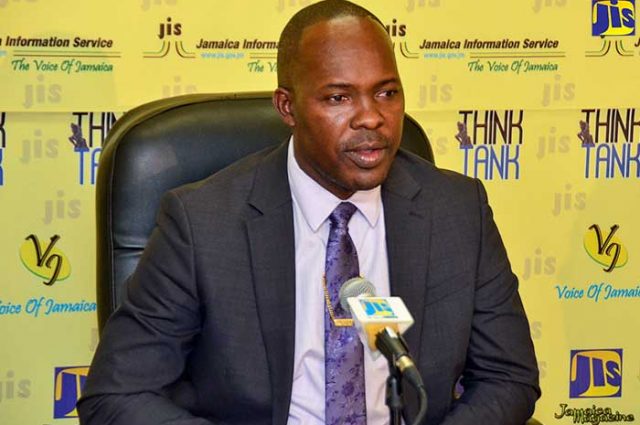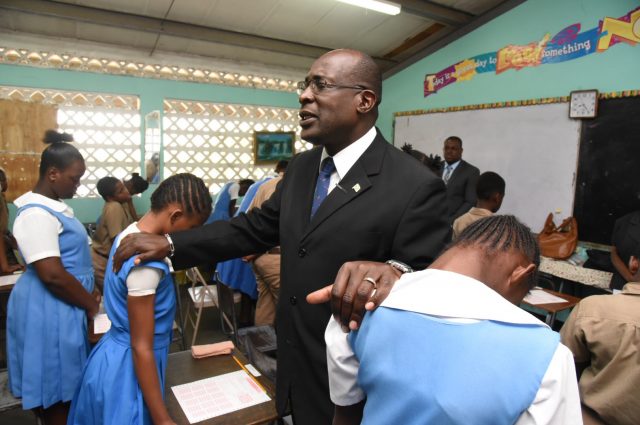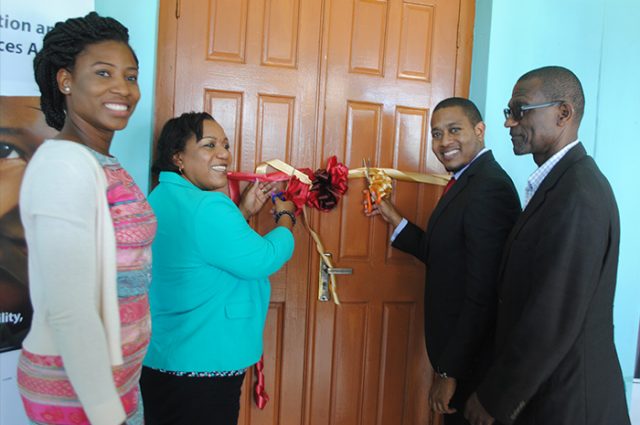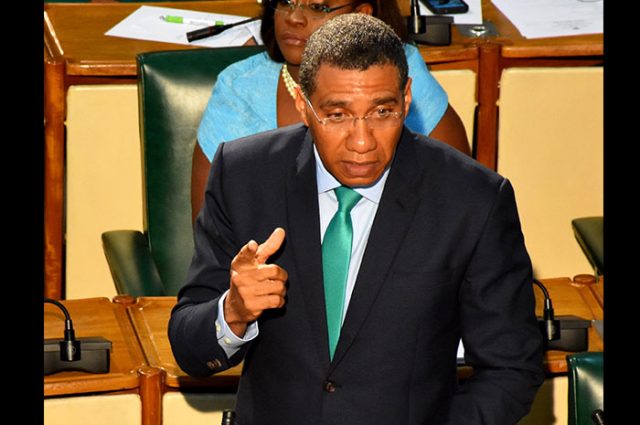JIS: After losing both her parents in quick succession, Maxine Williamson found herself in an interesting situation.
The two children that her parents fostered had suddenly become her responsibility. Rather than having them return to the residential-care system, Ms. Williamson, who was living in Canada at the time, decided to return to Jamaica to take care of the children.
“I left my corporate job in Canada and came to Jamaica ‘cold turkey’, because I really wanted to provide a home for these children,” she tells JIS News.
She says that because she was not the original foster-parent, she had to go through an evaluation process with the then Child Development Agency now Child Protection and Family Services Agency (CPFSA) to determine her suitability.
“I was so nervous,” she recalls. “However, they interviewed me, did their background checks and told me everything is in order. Today, I am the proud parent of two beautiful foster children,” she boasts.
Ms. Williamson says she has no regrets in making the decision to become a foster-parent.
“Persons were saying that the children were so lucky to have me, but for me, it was the other way around; I was so lucky to have them. They helped me heal after the death of my parents; we found solace in each other. It was these foster children that saved me from the devastating loss,” she shares with JIS News.
Ms. Williamson, who has been a foster-parent to 16-year-old *Sandra and 17-year-old *Javaughn for over two years now, also has two biological daughters.
She notes that they are “wonderful and loving children”, and after raising two girls, it was interesting to parent a boy.
“They call me ‘sis’ because they were used to calling my mother ‘mom’, but that has not stopped me from being an effective parent. Sandra’s academic performance has improved significantly, moving from an F student to a B+ student and she is now preparing to take her (Caribbean Secondary Education Certificate (CSEC) exams. I am seeing this once-shy young girl become the vice-president of a club and representing her school at events. She is now a very confident young lady,” she tells JIS News. Javaughn is also doing well in high school. “I remember him getting 100 per cent on a math test and the excitement and joy when he was showing it to me,” she recounts.
Ms. Williams says Javaughn was described as someone with anger issues, but she has never seen that part of him. Instead, she says, she sees a young man working every day to become a better person.
She tells JIS News that her wish is for them to become great citizens, and, so far, they have surpassed her expectations. “Our family is a very loving family, and to see these two children returning hugs just warms my heart,” she says. Sandra, in relating her experience as a foster child, says that “coming from a children’s home it was a different environment, and I had to adjust and get used to having new persons in your life”.
“It has been a great experience so far. I now get to be part of a family, and this helps to build different aspects of my life in a positive way. I now know what it is like to live with a family of my own; it has just been great,” she shares with JIS News. Sandra wants to become an actuary, and is confident of achieving her career goal with the support of her foster family.
The Foster Care Programme is the CPFSA’s flagship family-based programme where wards of the State are placed in homes to be part of a family.
Director of Children and Family Programmes at the CPFSA, Audrey Budhi, tells JIS News that studies all across the globe show that children perform better in a family setting, as a nurturing environment is provided for the child’s physical, mental, spiritual and emotional growth and development.
She explains that unlike adoption, foster care does not involve the total surrender of parental rights.
Mrs. Budhi notes that children need personal care and attention even from the earliest stage of development.
“Studies have shown that when a child looks in your eyes, when you talk to him or her, that deep bond and emotional connection assists in their growth, builds self-confidence and self-awareness,” she says.
Mrs. Budhi is encouraging more Jamaicans to become foster-parents. She notes that there are not enough facilities to accommodate children who are in need of care and protection.
“If we have enough foster parents to take care of these children, then we will be assured that children, who are in need of care and protection, will be taken care of, and this is why foster care is being pushed by the CPFSA,” she points out.
Dwayne Haynes was placed in foster care at eight years old agrees.
“Every child deserves to feel special, to have somebody there for them, someone to count on, because that is what is going to make the difference between my generation going in the wrong direction or going the right path,” he tells JIS News.
Dwayne was placed in the State care system due to his mother’s mental illness. After learning that he was a resident at the Maxfield Park Children’s Home, his grandfather applied to the CPFSA to become his foster-parent. Dwayne is the youngest of four children for his parents and was the only one to become a ward of the State.
Today, the 23-year-old University of the West Indies (UWI) and St. Jago High School graduate is pursuing a Master’s Degree in Marketing and Data Analytics at UWI and is also working with the Sandals Foundation.
A Residence Advisor for the Irvine Hall of Residence at UWI, Dwayne has high praises for the CPFSA.
He tells JIS News that the agency ensured that he and his foster-parent got all the help necessary to aid in his growth and development. He, too, is encouraging more responsible Jamaicans to become foster-parents. “A lot of times, persons are skeptical about foster care, not knowing how they will deal with issues that may arise, but everything in life is a risk,” he points out.
“Children in State care need somebody to take care of them,” he says, noting that “I am willing to give back a lot of my time to the children’s homes”.
The Foster Care Programme has been operating since 2004, and as at December 2017 there were some 767 children in the programme and 800 families providing foster care.
Each child in foster care gets a bimonthly subvention, annual back-to-school assistance and medical support. The foster parents are exposed to training in childcare and receive certification upon completion.
To become a foster parent, one has to be a responsible adult between the ages of 25 and 65 years, single or a couple. Consideration is given to persons over 65 if they are in good health. Placement with a single male is only done if the applicant is related to the child, or in exceptional circumstances.
Interested persons must have suitable accommodations, be gainfully and consistently employed and must be willing to undergo a medical examination. When submitting their application, they must provide two references from a notary public, such as a justice of the peace or pastor; two passport-sized photographs and a police record.
A children’s officer will follow up with background checks and home visits to ensure that the environment in which the child will be living is up to the standard of care that the CPFSA sets out.
Mrs. Budhi explains that in order to ensure that the children are taken care of the CPFSA has developed 29 Standards of Care to which foster parents must adhere.
There are also monitoring officers who visit the foster homes and each child is assigned to a social worker, who works with the parent and child. There is zero-tolerance for breach of standards.
Persons who are interested in becoming a foster parent, may contact the CPFSA at 948-2841-2 or visit any of their offices islandwide for further information.
CAPTION: Twenty-three-year-old master’s student at the University of the West Indies (UWI), Mona, and former ward of the state, Dwayne Haynes.











